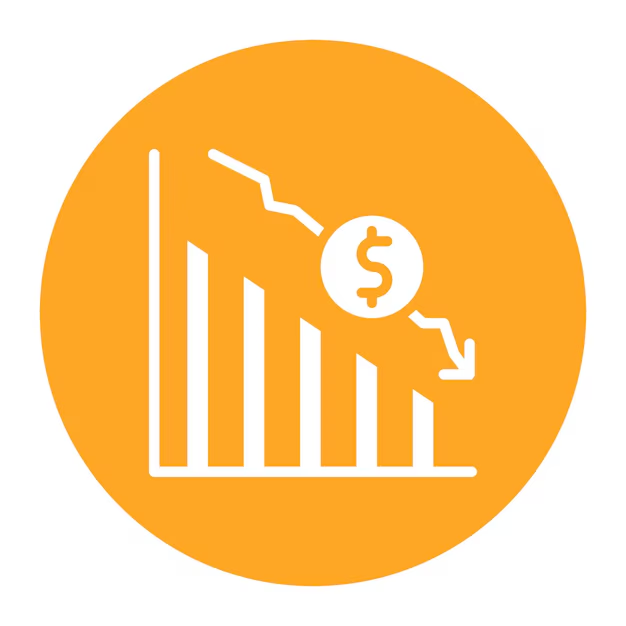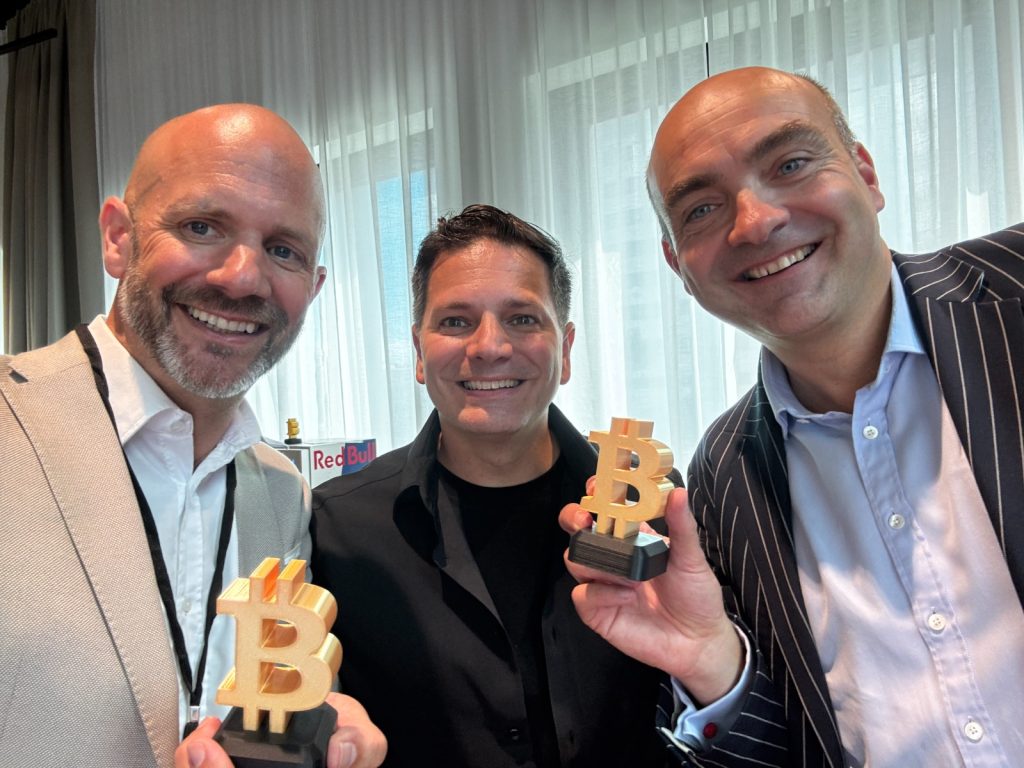Vienna Blockchain Week 2025 brought 200+ industry professionals to DC Tower for three days of discussions on security, compliance, and institutional Bitcoin adoption. The event highlighted blockchain’s maturation from experimental tech to mainstream financial infrastructure, featuring speakers from across Europe and beyond. Key themes included regulatory frameworks, tokenized real-world assets, and DeFi’s evolution, with spectacular rooftop networking overlooking Vienna’s Danube River.
Security and Compliance: The Focus
The conference began by emphasizing security and forensics—foundational elements for any lasting blockchain system. Georg Lanzinger from m2n consulting and blockzeit.com Ambassador guided the opening panel. Speakers included Sviat Dubovskyi from Crystal Intelligence, Karl Zettl from Iknaio Cryptoasset Analytics, and Raphael Strass from Austria’s Federal Criminal Police Office, specializing in Blockchain Forensics.
This discussion was not merely theoretical. It showed the practical evolution of blockchain. Law enforcement now actively investigates cryptocurrency cases, while analytics firms offer advanced tracking tools. The industry has clearly moved past its early, unregulated beginnings.
The following compliance and regulations segment echoed this idea. A strong group of legal and regulatory specialists presented. Among them were Delphine Forma from Solidus Labs, Georg Harer from Bybit EU, and Dr. Nina-Luisa Siedler, a virtual assets expert. Paul Neubauer and Alexander Glaser from EY Law’s New Technologies Team also spoke. Their presence highlighted the mainstream legal community’s serious involvement with blockchain.
One forward-looking session tackled the rules for Decentralized Autonomous Organizations (DAOs). Tonia Damvakeraki from the University of Nicosia led this discussion. Panelists like Luca Castellani from UNCITRAL and Anne-Grace Kleczewski from MME explored a complex regulatory hurdle for the blockchain space.
Bitcoin’s Institutional Rise
Day two turned to Bitcoin’s changing part in finance. Nasib Fathi, DLT Austria’s Head of Growth, moderated the mining, energy, and infrastructure panel. The energy part for blockchain was under surveillance of thesociety and there is huge progress. Professor Horst Treiblmaier from University Vienna offered academic views. Industry leaders like Bernhard Thalhammer, CEO of SEND-SOCIAL and lecturer, shared practical experience.
Perhaps most notably, the “Bitcoin as Strategic Reserve” session addressed a key topic in financial headlines during 2024 and 2025. Institutional adoption grows through ETFs and corporate treasury allocations. Panelists Jim Dorra from TRACTIAL, Marco Minuz from Montis Consulting AG, and Alexei Zamyatin from BOB explored Bitcoin’s shift. They discussed its journey from a speculative asset to an institutional reserve currency.
The payments and stablecoins segment proved equally timely. Vid Hriber from Raiffeisen Bank represented traditional banking. Digital-first firms also participated. Sebastian Becker from Bundesblock led the panel, which included Mazurka Zeng from Bybit Europe. This highlighted the coming together of old and new finance.
The Energy supply
This central topic of the event was addressed by Jürgen Eckel, CEO of Riddle&Code, showing the link between technology and energy infrastructure. He highlighted Austria’s excellent electricity grid, calling it a strategic benefit. Eckel described how blockchain solutions change energy distribution, which makes systems more responsive and efficient.Here Austria’s strong electrical infrastructure is a base, positioning the nation at the forefront of the global energy shift. This shows how technology solves real infrastructure problems, going beyond finance.
DeFi’s Evolution and Real-Work Use
The DeFi discussions showed an industry moving past simple yield farming. It now focuses on lasting, useful applications. Alexander Lenz from SMAPE Capital and Ryan Zega from Aptos Labs brought institutional perspectives. Researchers like Vinzenz Treytl from ABC Research gave academic depth to the talks.

Tokenization: Bridging to Traditional Finance
The final day’s focus on tokenized real-world assets felt most practical for the entire conference. Speakers included Berthold Baurek-Karlic from Venionaire Capital, Tibor Mérey from Boston Consulting Group, and Oscar Riegler from Black Manta Capital Partners. Their talks moved beyond theory to concrete implementation plans.
Established financial institutions and consulting firms involved in these sessions signal a core change. Tokenization no longer appears a blockchain experiment. It becomes a mainstream financial tool. It improves liquidity, shortens settlement times, and opens access to assets usually difficult to trade.
International Views and Regulatory Alignment
A core strength of Vienna Blockchain Week was its international reach. Speakers and attendees traveled from across Europe—Austria, Germany, and Switzerland formed the base. Participants also came from Ireland, Spain, and even the Cayman Islands. This global mix reflected blockchain’s worldwide nature. It also highlighted Europe’s increasingly coordinated approach to digital asset rules.
The crypto indices session, featuring Ed Prinz and Yves Holenstein from Bitcoin Suisse AG, showed how European financial systems adapt for digital assets. Similarly, the institutional investment panel with Bernhard Wenger from 21Shares and Andrew Forson from DeFi Technologies demonstrated how traditional investment products now include cryptocurrency exposure.
Networking and Community
Beyond formal talks, Vienna Blockchain Week excelled at creating chances to connect. Daily food and drink breaks offered structured interaction. Rooftop afterparties at the DC Tower provided great views of Vienna and informal relationship building. VIP rooftop lounge access added more networking layers, ensuring leaders and new professionals could connect meaningfully.
Bybit’s dedicated networking evening on day two exemplified how major industry players invest in community. They recognize that blockchain’s success depends on human connections as much as new technology.

Looking Ahead
Vienna Blockchain Week 2025 showed an industry in change. It shifts from experimental technology to essential financial infrastructure. The emphasis on compliance, institutional adoption, and real-world asset tokenization suggests 2025 might mark the year blockchain truly joined traditional finance.
The event’s success, drawing over 200 participants to Austria’s capital, strengthens Vienna’s status as a European blockchain hub. DLT Austria‘s ongoing leadership and the support of media partners like blockzeit.com establish Vienna Blockchain Week as a key event for anyone serious about blockchain’s path in Europe.
As the industry moves from speculation to real use, events like Vienna Blockchain Week offer crucial places for talks. These conversations shape blockchain’s next chapter. The 2025 edition successfully gathered the right mix of regulators, technologists, and business leaders to tackle future challenges and chances.
What’s your Reaction?
+1
1

+1
0

+1
0

+1
0

+1
0

+1
0

+1
0




